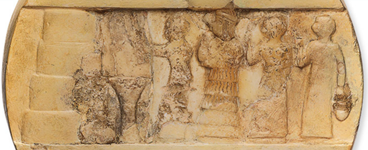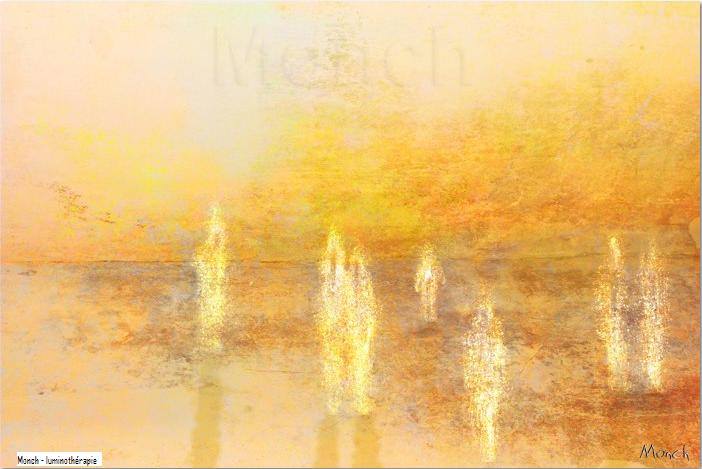Enheduanna: The First Known Author of All Time

The Triumph of Literature over Violence
Enheduanna is the first author to sign her name to works of literature.
She signed her name like this:𒂗𒃶𒌌𒀭𒈾
Think on it: The first and most significant literary event in all history — and it is a woman who first had the notion of appending her name to a work of literature.
She was an Akkadian born 4300 years ago, likely in 2285 BCE, and lived in Ur (near modern Baghdad, Iraq). She lived until roughly 35 years of age, dying in about 2250 BCE, and was the daughter of Sargon of Akkad (2334 – 2279 BCE) and Tashlultum.
Enheduanna's Family
Sargon the Great
Sargon is considered to have been the first man in history to have created what we would term an empire (meaning a territory with multiple states and ethnicities). Known as Sargon the Great, he was the first ruler of the Akkadian States, conquering more than 30 cities and keeping a standing army of 5,400 men who “ate bread daily before him”.
There are texts that claim Sargon was the illegitimate son of a high priestess and that he did not know his father. Other texts speculate that he was the son of a gardener or the cup-bearer of the King of Kish.
Tashlultum
Enheduanna's mother, Tashlultum, was a wife of Sargon, and is presumed to be the mother of his children (Enheduanna, Rimush, Manishtushu, Shu-Enlil and Ilaba’is-takal). She was a hairbreadth away from disappearing unnamed into the darkness of history, but her existence was confirmed by a fragment of an alabaster vase. This mere shard carried an inscription citing her dedication of the vase or bowl to a temple.
Her Four Brothers
We know of a brother, Rimush (died 2270 BCE), who succeeded Sargon, and another boy named Manishtushu (died 2255 BCE), who became king at the death of Rimush. Both Rimush and Manishtushu were likely assassinated. Two other brothers are named, Shu-Enlil and Ilaba’is-takal, of whom very little is known.
Enheduanna's Name and Writings
The name Enheduanna, by which she was known, was not likely her given name. “Entu” meant “high” and “Nanna” was the name of the moon god; this makes sense as she was appointed by her father to role of high priestess and leader of that religious cult.
Furthermore, this cult was intended to unify those practising the Akkadian religion of her father with that of local Sumerian faith.
Sargon must have had a very high regard for his daughter – he exalted her to a position of massive importance in their world.
A scholar of the period, Irene J. Winter, believes that Sargon probably wanted to consolidate “the Akkadian dynasty’s links with the traditional Sumerian part in the important cult and political center of Ur”. Winter believed that Sargon determined Enheduanna would be best suited to this significant position in the native Sumerian moon god cult. In this function, Enheduanna would have enjoyed a prestige similar to that of a ruler, being cast as the embodiment of Ningal, the wife of Nanna. Enheduanna’s words and actions would have carried the authority of the divine.
Enheduanna's Works
Enheduanna was the first author in all the world to sign her name to her written works. It is generally affirmed that she wrote the Sumerian “Exaltation of Inanna” (where she writes as a first-person narrator) and other pieces such as “Sumerian Temple Hymns”.
While as high priestess worshipping the deity Nanna, her writings often focused on Inanna, the daughter of the deity. Inanna, a goddess of love, war, fertility, and was associated with sensuality, divine law and political power. She has been known through the ages under many names: Astarte in Canaan, Aphrodite in Greece, Venus in Rome, Isis in Egypt and many more. Of her many titles, she is frequently referred to as “The Queen of Heaven”, a title later somewhat usurped by Mary, mother of Jesus.
Controversy
There is some controversy around the validity of her authorship. Jeremy Black, an astonishingly prolific British American historian (whose focus seems directed predominantly toward warfare and military history) is one of the more dismissive on the subject, asserting that she didn’t write anything herself and that it was her male scribe who composed the works on her behalf. However, many other august and credible historians have challenged Black’s highly patriarchal view and confidently assert that Enheduanna was indeed an accomplished writer.
Strife: Rebellion of Lugal-Ane
During Enheduanna’s lifetime and towards the end of the reign of Sargon’s grandson Naram Sin, there occurred several rebellions in the former city states previously incorporated into the Akkadian empire. In her song Nin me šara (“The Exaltation of Inana”), Enheduanna provided clues to piece together the events (obviously from her point of view). Here is what she related:
A certain Lugal-Ane assumed power in the city of Ur (where Enheduanna was high priestess) and asked Nanna, the city deity, to recognize his legitimacy as ruler. Since Enheduanna was the consort of this Moon God, Lugal-Ane asked her to endorse his new rule as leader. Being part of the Sargon family, she refused. Consequently, she was removed from her office and expelled from the city. She found refuge in the city of Ĝirsu, and it was there that she composed the hymn “Nin me šara”, a supplication to the goddess Inanna to intervene on behalf of the Akkadians.
King Narām-Sîn was able to quell the rebellion of Lugal-Ane (and others) and restored the Akkadian central authority for the remaining years of his reign. It is assumed that Enheduanna returned to her office in the city of Ur once her family was back in charge.
The Triumph of Literature over Violence
There is an interesting legend cited elsewhere along with texts in Enheduanna’s writings concerning these events. Supposedly Lugal-Ane, once he seized power, called her to him, spat on his hand and placed it over her mouth. He then held up a dagger — possibly a symbol or literary device for something else — and commented that it was very suitable for her mouth. She was then raped, dragged from her post, and made to wander among “thorny bushes”. Her words are now filled with sadness:
My ability to sweeten moods, has turned to dust
𒃻 𒄯 𒊷 𒊷 𒈬 𒅖 𒋫 𒁀 𒁕 𒄄
In this life-giving land, what am I?
𒆠 𒍣 𒊮 𒅅 𒆷 𒅗 𒂷 𒂊 𒀀 𒈾 𒈨 𒂗
Will I die because of my Holy song?
𒂡 𒆬 𒂷 𒆤 𒌍 𒉌 𒂦 𒄀 𒉈 𒂗
According to the legends, Enheduanna’s mouth was that of a poet, “honey-sweet” and innocent. Because of the rape and what was forced into her mouth, she lost the power of speech; but she refused to be silent. In her hymns, she incriminated her tormentor, cursed him and implored Inanna to punish him.
Possibly sometime after her return to Ur, a limestone and calcite disc was fashioned by a contemporary artist, showing Enheduanna wearing a conical headdress over neatly plaited hair. Her garment is tiered and pleated. At the centre and slightly larger than the other figures, she is attended by three more simply attired individuals who assist in presenting offerings to the goddess. She gazes upward, from Ur to the numinous abode of the deity Inanna.
And this is all we know of Enheduanna: One image, her extensive writings, and her name. But it is more than enough; she reaches out to us through millennia.
𒂗𒃶𒌌𒀭𒈾𒂗𒃶𒌌𒀭𒈾𒂗𒃶𒌌𒀭𒈾𒂗𒃶𒌌𒀭𒈾𒂗𒃶𒌌𒀭
Would you like to read other posts? If so, please click the Home Page link below:

You, Dear Reader, are much needed and appreciated.
Everything written requires a reader to make it whole. The writer begins, then you, dear reader, take in the idea and its image, and so become the continuation of its breath. Please subscribe so that my words can breathe. Consider this my hand, reaching out to yours.
